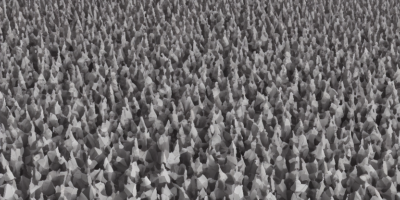1. The Power of Quantum Computing
Quantum computers are not just faster than classical computers; they have the potential to solve problems that are exponentially more difficult than those that can be solved on a classical computer. To understand why, let’s consider an analogy: imagine trying to find a specific book in a large library. A classical computer would search through the library one book at a time, while a quantum computer could simultaneously examine every book on the shelves, greatly reducing the search time.
2. Quantum States and Measurements
At the heart of quantum computing is the concept of quantum states and measurements. Quantum states are like multiple-choice questions in a test; they can exist in multiple forms simultaneously until observed. When we measure a quantum state, it collapses to one specific form, kind of like picking an answer on a multiple-choice question. This phenomenon is known as wavefunction collapse.
3. Quantum Gates and Circuits
Quantum gates are like puzzle pieces that help perform quantum computations. They can be combined in various ways to create complex quantum circuits, which are like intricate patterns of puzzle pieces. By manipulating these quantum gates and circuits, researchers can solve complex problems in a way that classical computers cannot.
4. Quantum Algorithms
Quantum algorithms are the programs that run on quantum computers. They are designed to take advantage of the unique properties of quantum states and measurements to solve specific types of problems more efficiently than classical algorithms. For example, Shor’s algorithm can factor large numbers exponentially faster than any known classical algorithm.
5. Noise and Error Correction
Unfortunately, quantum computers are prone to errors due to their sensitive nature. These errors can accumulate and cause the computer to produce incorrect results. To combat this problem, researchers use various techniques like noise-resilient codes and error correction codes to protect the quantum state and ensure accurate computations.
6. Quantum Cryptography
Quantum cryptography is a technique that uses quantum states to secure communication. By exploiting the principles of quantum mechanics, such as superposition and entanglement, researchers can create unbreakable encryption keys, ensuring that only authorized parties can access the information.
7. Conclusion
In conclusion, quantum computing has the potential to revolutionize various fields by solving problems that are exponentially more difficult than those solvable on classical computers. While it’s a complex and rapidly evolving field, understanding the basic concepts like quantum states, measurements, gates, algorithms, noise, and error correction can help demystify this exciting technology. As researchers continue to advance our understanding of quantum computing, we can expect to see groundbreaking applications in fields like chemistry, materials science, and artificial intelligence.



